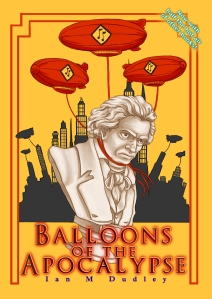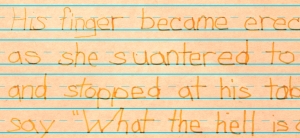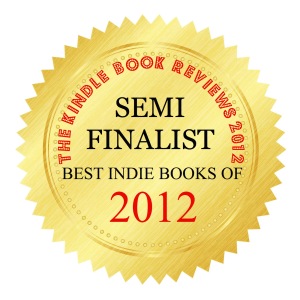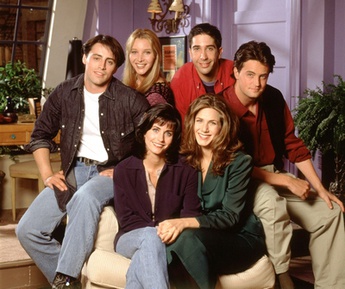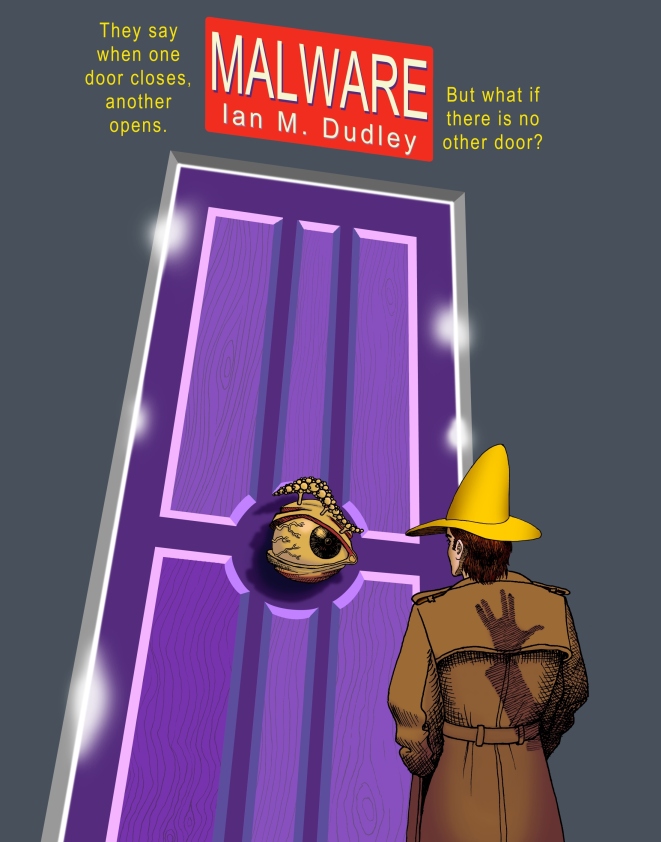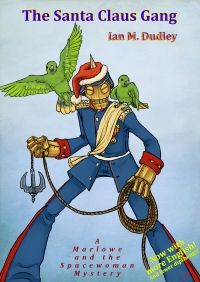I just recently came out of a long dry spell that I’d been enduring.
For writing. A dry spell for writing. The dating dry spell ain’t going away, cause I’m married. The sex dry spell, well, I’m married with kids. Young kids. You do the math.
Actually, one could argue I’m not completely clear of the writing dry spell just yet. I’ve jumped back in by editing a couple of ancient projects that have been avoiding dust in a hermetically sealed desk drawer for the last decade.
Yes, decade. I’m taking baby steps. And not just so I won’t wake my sleeping toddlers.
But this long dry spell got me to thinking about Muses, because I’m without one.
Oh, don’t get me wrong. I’ve had Muses before, and plenty of them.
My first Muse came to me in high school and stayed with me through college. As with most tales involving heterosexual male writers, she was a woman, I was madly in love with her, and I was too terrified to tell her.
Ah, happy days.
Instead of asking her out, maybe dating her, and, you know, being happy for a few weeks before my complete and total lack of social graces and maturity poisoned her to me forever, I did the next most logical, obvious thing:
I wrote for her from a distance.
She was in my poetry, short stories, not-so-short short stories, and a play I wrote.
Funny thing, that play. My muse actually ended up being cast as the character based on her. It struck me as a sign, and still I said nothing.
What can I say, today-Ian may be a mercury-poisoned mad man, but college-Ian, who hadn’t been exposed to mercury yet, was a flat-out idiot.
Which is not to said I’m sad and mopey and wish things had turned out differently. My life is awesome, with an amazing wife and adorable children, and I could never risk erasing them from my life by going back in time and bitch-slapped some common sense into my earlier self.
It’s true. And I’m not just saying that because my wife reads this blog. Or because traveling back in time, in addition to being impossible unless you’re wealthy enough to afford a DeLorean, could create a paradox that destroyed the very fabric of the universe.
My point is, I had a Muse. And holy crap, I had output too. Every free moment, even those that would have been better spent hitting the books, was spent writing.
And dating other women. There was some of that too.
I’ll bet those women, since I’m sure all of them, to this day, still think about me, wished I would go back in time now to fix things with that first Muse and prevent my ever meeting, let alone dating, any other women, potential destruction of the universe be damned.
To which I can only say, I am so, so sorry.
And then, one day, I moved on.
OK, my muse got married. To someone else. And he wasn’t even American!
Talk about adding insult to injury.
I had other Muses. Other women. Many of them also oblivious to me, or only aware of me in the most peripheral way. Usually dating my best friend or something. Not that I’m bitter at all. No sir.
But none of them were quite the same. No Muse is ever like your first one.
My wife was my Muse for a while, before we got married. In fact, and this is relevant later, she was my Muse when she lived far away and we rarely saw each other. I wrote some stuff I’m rather proud of with her in mind.
And some stuff I’m not proud of, but that was true of all my Muses, even my first. Sometimes I was just a hack and no amount of Musing can overcome that.
But somewhere along the line, writing changed for me.
I’m not sure where, but it might have been Nanowrimo, when writing became about the deadline and word count and turning off your inner editor. Then I got serious about writing, ended up self-publishing, and the writing became about marketing and selling books.
It became a business.
Which is about when the dry spell started. Hmm…
I also got a day job, bought a house, got married, had kids. Shit got real.
But whenever and however it happened, the end result was I stopped writing for someone beyond me anymore.
I lost my Muse.
And I didn’t even notice until recently.
Which got me to wondering. As writers, do we need a Muse?
I’m not so sure. For quite a while, I was doing pretty well without one. Sure, maybe not so much lately, what with the re-hashing of old work, but excluding the last six months or so, the last few years have been good for my writing.
Are the last few months relevant to this question about having a Muse? Or are they, perhaps, crucial? If I had a Muse six months ago, would I have still fallen off the writing wagon, or would I have climbed over the harness rigging the horses to the wagon and whipped them into a frenzied gallop of writing abandon?
So, there it is. They question of the hour.
Do writers need a Muse?
And if we do, who would be my Muse?
My kids? Seems like a great idea, writing for my kids. It’s an idea I had before my kids were even a gleam in my eye. But if having my kids as Muses results in stuff like Kleencut (FREE picture e-book, just released on Smashwords, should be hitting Amazon, Barnes & Noble, etc. soon), then maybe they aren’t such a hot choice.
Plus kids get so territorial:
“Who’s the better Muse? Me or my brother?”
“I know you say we’re both your Muse, but it’s really just me, right?”
“I’m the Muse for your good books, right, but be honest, my brother’s the Muse for the terrible ones.”
I don’t want to break the heart of the lesser Muse by having to tell him that he sucked as an inspiration. That’s the sort of thing that leads a kid to grow up into a serial killer.
One that starts with his writer father.
So kids are out.
My wife is the obvious next choice. But I think there has to be pain and distance associated with a Muse. The Unattainable, set on that Pedestal of Too Highness that is just out of reach. Without a blend of angst and ‘maybe, some day’, well, you have nothing to which you can aspire.
This is what happens when all your dreams come true, when you marry and move in with the woman you love.
Suddenly the Unattainable is not just Attainable, but Attained, and that Pedestal of Too Highness has succumbed to the mighty lifting power of a shared bed.
Seriously. Our bed is on stilts. It’s this kink we have. Don’t judge.
So clearly my wife is out.
And just as clearly, at least if I want to talk about it publicly, all other women are also out.
Do you have any idea how rare it is to find a heterosexual woman with a stilt fetish who’s willing to settle down and marry? When your dreams have all come true, you don’t rock the boat with a bone-headed idea like dragging in another woman as your Muse.
How do you have that conversation with your wife?
Me: Hey, I’ve found a new Muse for my writing.
Missus: Took you long enough, considering I’ve been here all along.
Me: Oh, well, it’s not you.
Missus: Oh? Who is it then? Bill in Accounting?
Me: Bill? No! Why would it be- Never mind. No, she’s not someone I work with. Not directly, anyway.
Missus: She?
Me: Yeah. I saw her on the subway, followed her home, went through her mail to learn more about her.
Missus: I see. Tell me more about this Muse who isn’t me.
Me: Um, she’s…nice?
Missus: Nice as in better looking, or nice as in more loveable?
Me: Um, no, it’s not like that at all.
Missus: Really? Then how does it work? How exactly does she inspire you if she isn’t tugging on your heart-strings? Or…wobbling your stilts?
Me: Just because she’s a rich, successful heart surgeon doesn’t mean I’m interested in her like that. She’s way too young, like in her early twenties, and her bust is way too big for me to- ACK…GARKGLE…hurting me…please…release testicles from steely grip…
[End scene]
Yeah, neither I nor my boys need that kind of drama. So, what does that leave?
Men, you say?
No. Despite the huge surge in hits my blog would get if I chose, for example, Blake Shelton naked as my next Muse, it just doesn’t do anything for me.
And doing something for me is kinda the point.
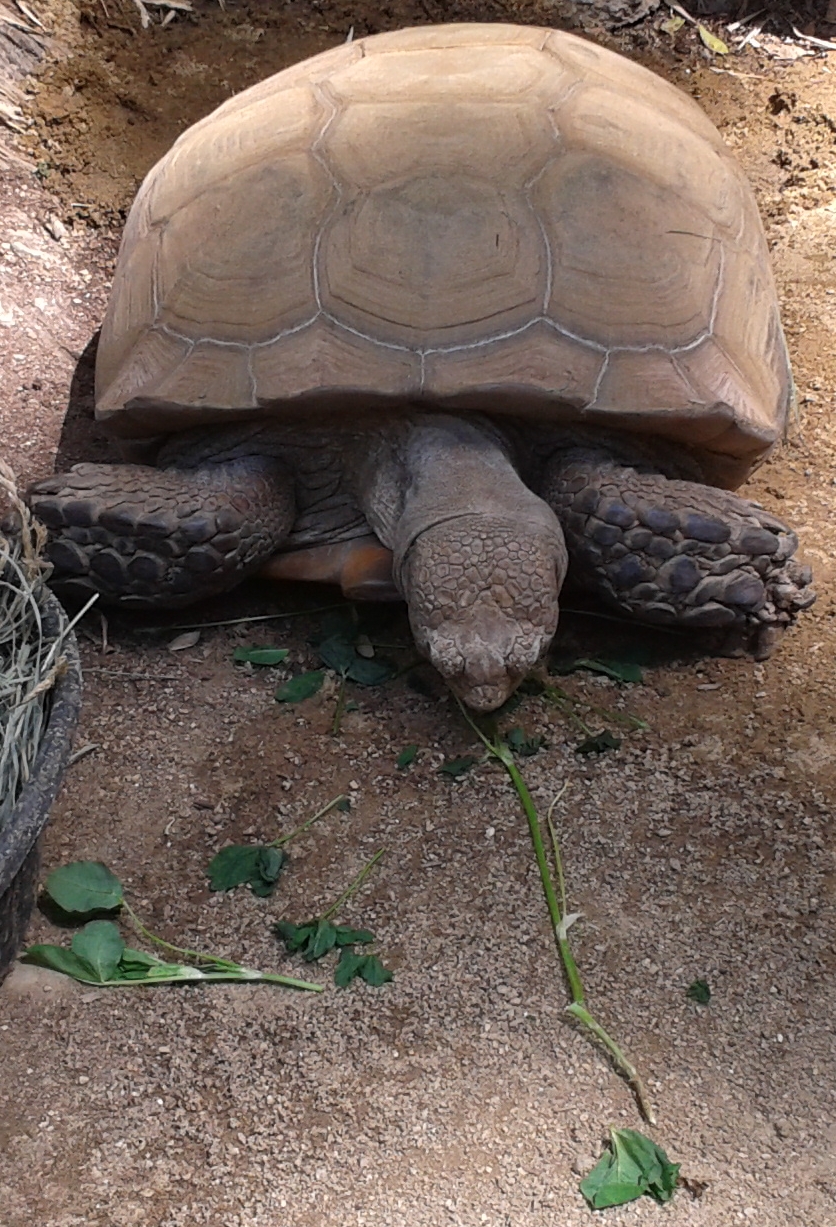
Once believed to be extinct, the Muse Turtle, or Chelonia gregārius, was known to be common in Greek and Roman times, and appears in much of the literature from those periods. If this over-sized turtle choking down a weed inspires you, then you're an even bigger loser than I am.
So, that leaves animals. And plants.
Well crap, that sucks. I’m allergic to animal dander, so I’d end up doing more sneezing than writing if I went the animal route (though I suppose reptiles or amphibians might work). But animals require upkeep, too, and I’m barely keeping my marriage and family together as it is, what with the younger, bustier Muses and the testicle-squeezing and the high cost of stilts maintenance.
And pining after someone else’s pet frog? Would you want to read something written by a creepy person like that?
Yeah, me either.
And if I chose a plant, well, with my luck, it would be poison oak. Plus I have a pollen allergy too, so sneeze-fest.
And come on, a plant as a Muse? What kind of sorry life would I have to lead where I’m inspired by an unattainable vegetable? It would have to be one of those exotic vegetables that they don’t allow in California for fear of fruit flies or something.
I’d have an easier time finding another woman with a stilt fetish.
Which really makes me hope that Muses are superfluous.
Because if they aren’t, I’m screwed.
—
And now, a word from our sponsor: me!
My books are now available!
Marlowe and the Spacewoman:

Kleencut (FREE!):
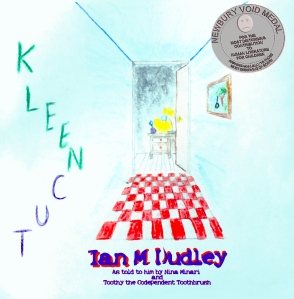
Spread the word! Can't stop the signal!

